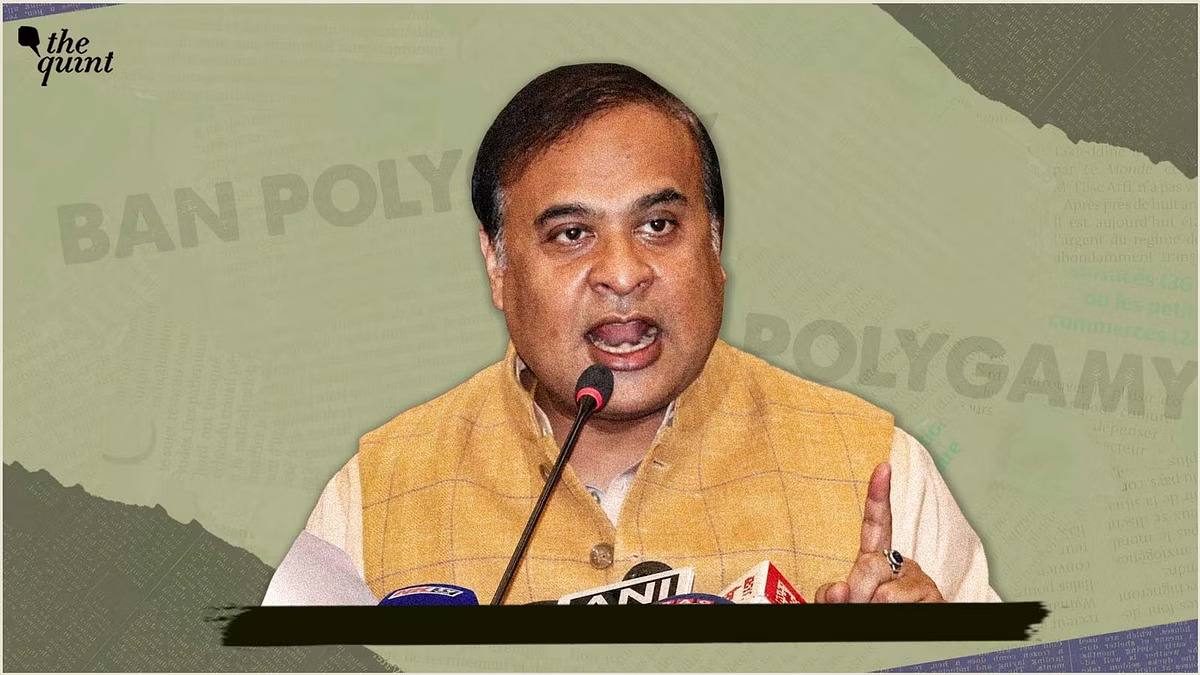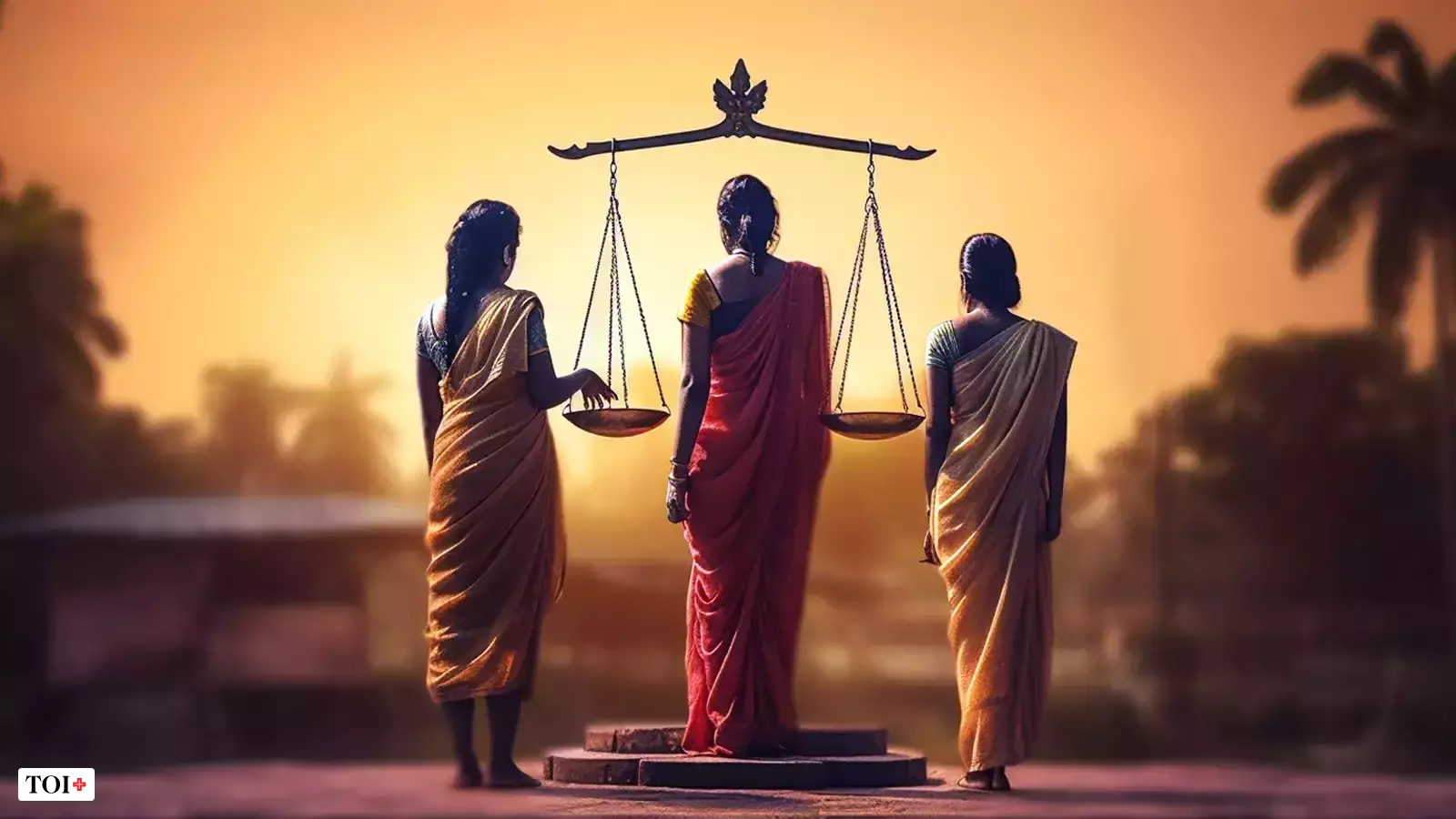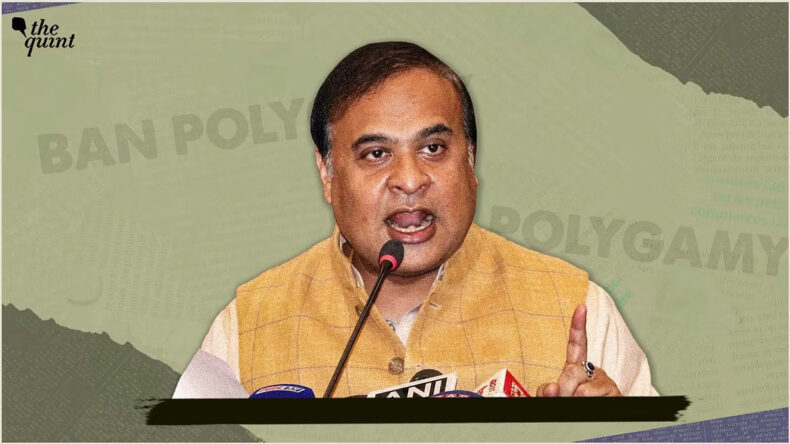
(Image source :The Quint)
Assam chief minister Himanta Biswa Sarma , has revealed that the bill which proposed a ban on polygamy had received overwhelming support from the public. It had received 146 suggestions in favour of the bill and 3 against the bill . The total suggestions were 149 .Earlier this year, the Chief Minister of Assam has said that the state will take “Legislative Action” to outlaw polygamy and that an “Expert committee” will be established to research the matter.
What is polygamy?
Polygamy is a marital arrangement where an individual has multiple spouses simultaneously. It encompasses various forms, with polygyny being the most prevalent, involving a man having multiple wives. Polyandry, although less common, reverses the roles, with a woman having multiple husbands.
Group marriages, where several individuals marry one another, and serial polygamy, involving multiple marriages sequentially, are less common forms. The acceptance and legality of polygamy vary across cultures and countries. While some societies permit it, others outlaw it due to concerns about gender equality and potential exploitation. Monogamy, having only one spouse at a time, is the prevailing marital norm in many parts of the world today
India Judicial Perspectives Related to Polygamy
The Indian judiciary has taken a number of different perspectives on polygamy over the years. In general, the courts have upheld the constitutionality of laws that outlaw polygamy, but they have also recognized that religious freedom may allow for some exceptions.
In the landmark case of State of Bombay v. Narasu Appa Mali (1951), the Bombay High Court upheld the constitutionality of the Bombay Prevention of Hindu Bigamous Marriages Act, 1946. The court held that the Act did not violate the right to freedom of religion, as it did not discriminate against any particular religion. The court also found that the Act was a reasonable restriction on the right to freedom of religion, as it was necessary to protect the interests of women and children.
In a later case, Parayankandiyal v. K. Devi & Others (1996), the Supreme Court of India reiterated the principle that laws that outlaw polygamy are constitutional. The court also held that Hindu culture does not condone polygamy, and that it is a practice that is harmful to women and children.
However, the Supreme Court has also recognized that religious freedom may allow for some exceptions to the rule against polygamy. In the case of Mohd. Ahmed Khan v. Shah Bano Begum (1985), the court held that the Muslim Personal Law (Shariat) Application Act, 1937, did not violate the right to equality of women, as it allowed Muslim men to practise polygamy. The court found that the Act was a reasonable restriction on the right to equality, as it was necessary to protect the religious freedom of Muslims.
The Indian judiciary’s approach to polygamy is a complex one, and it reflects the tension between the right to freedom of religion and the need to protect the rights of women and children. The courts have generally upheld the constitutionality of laws that outlaw polygamy, but they have also recognized that religious freedom may allow for some exceptions.In recent years, there has been growing pressure to ban polygamy in all religions in India
Expert committee on Polygamy
In May 2024,to determine whether the State Government had the jurisdiction to outlaw polygamy in the area, the Assam Government formed an expert committee. The Muslim Personal Law (Shariat) Act, 1937 and Article 25 of the Indian Constitution will be examined by the committee in connection to the guiding concept of state policy for a uniform civil code.
To make an educated conclusion, the committee will undertake lengthy talks with all parties involved, including legal professionals.The state’s chief minister noted that during the campaign against child marriage, it was discovered that many elderly men had many spouses who were often young girls from the underprivileged part of society.
Committee findings on Polygamy
On August 6 ,the committee believed that marriage was a concurrent subject . Both the state and Centre could pass legislation . It also believed that the religious laws were not supreme and were subject to change in morality , customs ,erc.The courts have ruled that having more than one wife is not a requirement for practising Islam.
Limiting the number of spouses through legislation falls within the heading of “social welfare and reform” and does not interfere with the freedom to practise one’s faith. Therefore, regulations encouraging monogamy do not contravene Article 25.
This was in accordance to the notice, which cited the findings of the expert committee’s study, which was led by Rumi Kumari Phukan, a retired judge of the Gauhati High Court.The expert panel concluded that the “State of Assam would have the legislative competence to enact a state legislature to end polygamy” based on these criteria . The bill has huge public support as well.

(Image source : Times of India)












